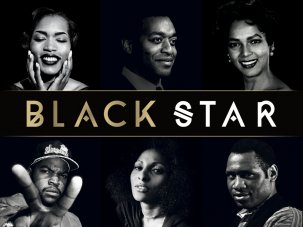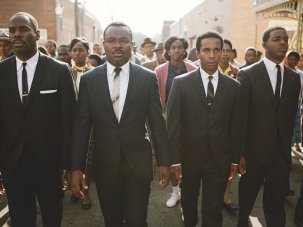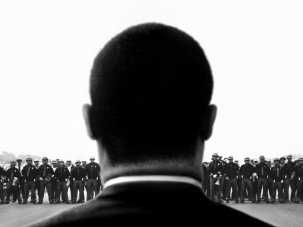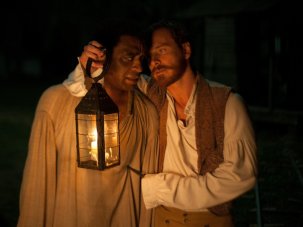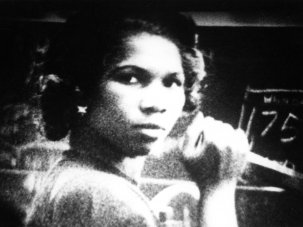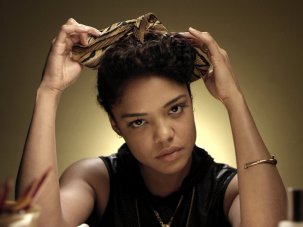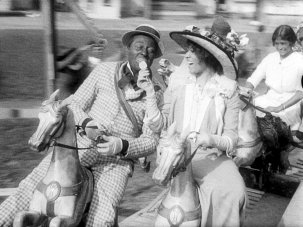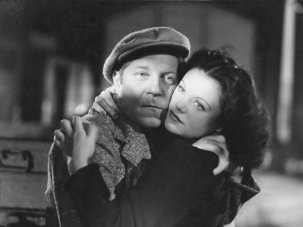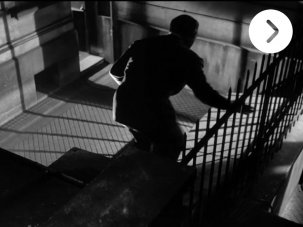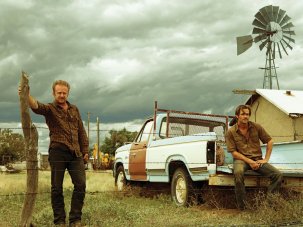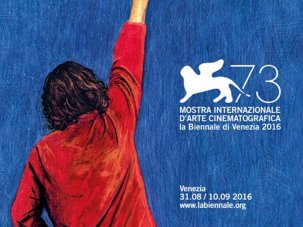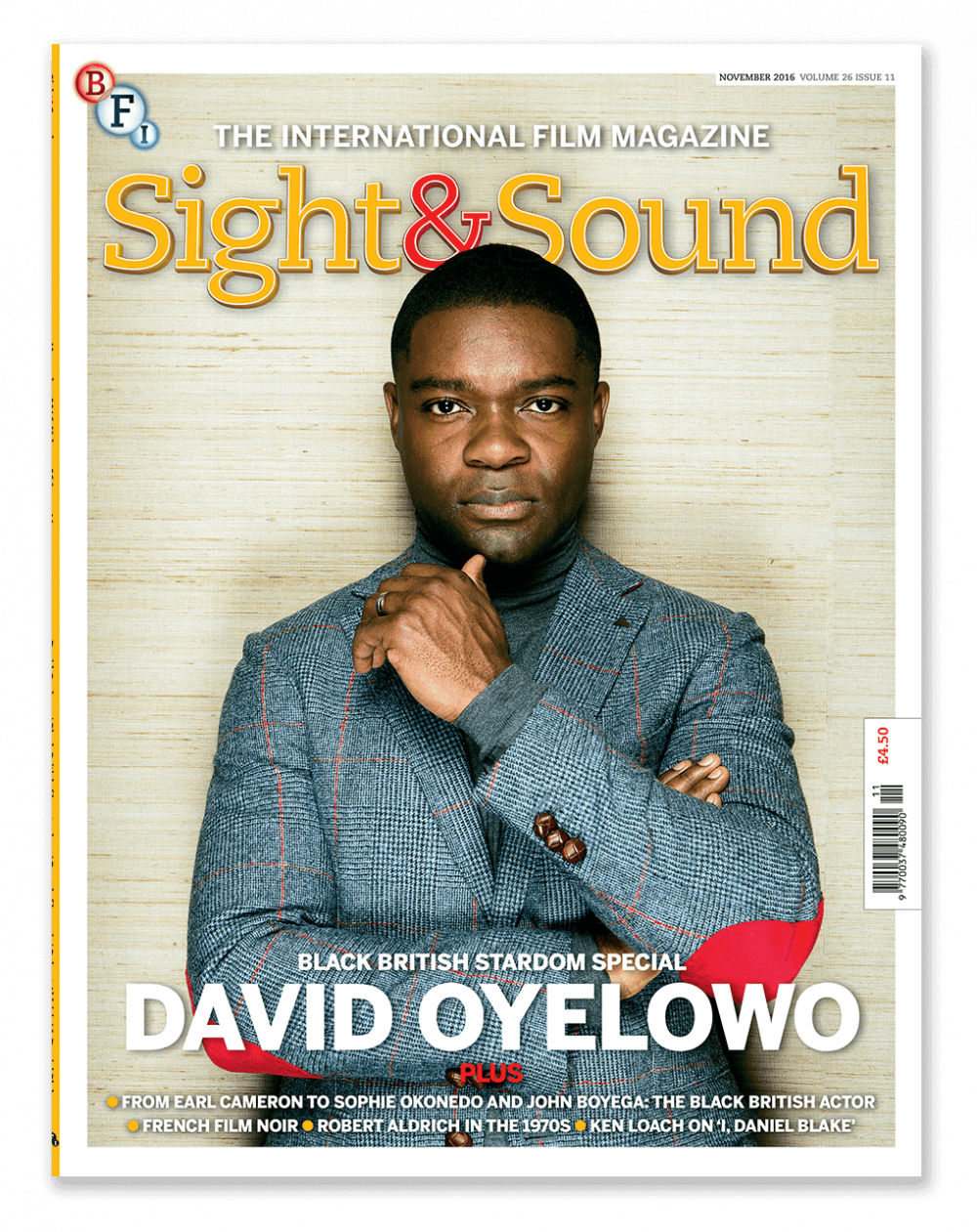
“Sean Connery, Terry Stamp, Michael Caine, Tom Courtenay, John Hurt. I started out with these people. Today they are stars. I’m not jealous. But why the hell not me? I have the same talent and ability.”
— Jonny Sekka, 1959
“I felt pushed out of the UK because of the glass ceiling I could feel my head bobbing against. I could see that actors, my peers, those who had a similar trajectory to me, were going on to do movies, to play leads. I started to feel I was going to go round in circles. Nice TV, back to the theatre, nice TV… but I wasn’t going to be James McAvoy, I wasn’t going to be Benedict Cumberbatch.”
— David Oyelowo, 2015
“Everything I create will always be diverse because that’s what I see, that’s my life, that’s how I grew up. … [my audience] can look at people like Stormzy and Tinie [Tempah] and Dizzee [Rascal] and they can think, ‘We can achieve.’ When I was growing up I could barely look at anyone who made me believe I could achieve.”
— Noel Clarke, 2016
Is this a moment? Could this be a turning point? As the BFI prepares its Black Star blockbuster season and David Oyelowo gives the keynote address at the London Film Festival’s Black Star Symposium, our November issue goes deep on the problems of British black stardom. In an interview with Gaylene Gould, Oyelowo talks frankly about his hard-won star power, his reasons for emigrating to America and his determination to ‘move the needle’ for future stars. “The idea,” he explains, “is to do as much damage as possible in the direction that I feel things need to go.”
Posted to subscribers and available digitally 7 October
→ Buy a print copy
→ Access the digital edition
→
On UK newsstands 11 October
Oyelowo’s A United Kingdom director Amma Asante meanwhile shares her own notes on the importance of the struggle to put diverse cultural histories on screen: “Sometimes when you’re a storyteller you have to start with your history. It’s only when you feel that the balance has been addressed, that we can be at the centre of these stories and see them through our gaze rather than through other people’s, that we can start to have a genuine freedom in the fictional stories we tell.”
Ashley Clark then maps the history – frustrating but also too little recorded – of both black British film stardom, from Earl Cameron to Sophie Okonedo and John Boyega, and the vagaries of casting opportunities that have seen black actors crossing the Atlantic. “I can’t help but feel a little rueful that American history is brought to life by British talent,” he concludes of the present moment, “while at the same time so many black British historical stories remain untold in the big screen.”
Finally, we unveil brand new BFI research data laying bare the statistics of black representation in British film. As BFI researcher Melanie Hoyes writes, introducing the study: “The issue here is how to increase the diversity in our narratives in order to appeal to audience tastes we are failing to serve.”
Elsewhere in this issue, Trevor Johnston talks to Ken Loach about his excoriating Palme d’Or winner I, Daniel Blake; Brad Stevens explores the remarkable late-career flourishing that saw Robert Aldrich direct Emperor of the North Pole, The Grissom Gang, Ulzana’s Raid, Emperor of the North Pole, Hustle and Twilight’s Last Gleaming; and for the latest in our Deep Focus series, Ginette Vincendeau gives us an in-depth tour of the French film noir across four decades and 12 key titles, from Jean Renoir’s 1932 La Nuit du carrefour to Jean-Pierre Melville’s 1962 Le Doulos.
Features
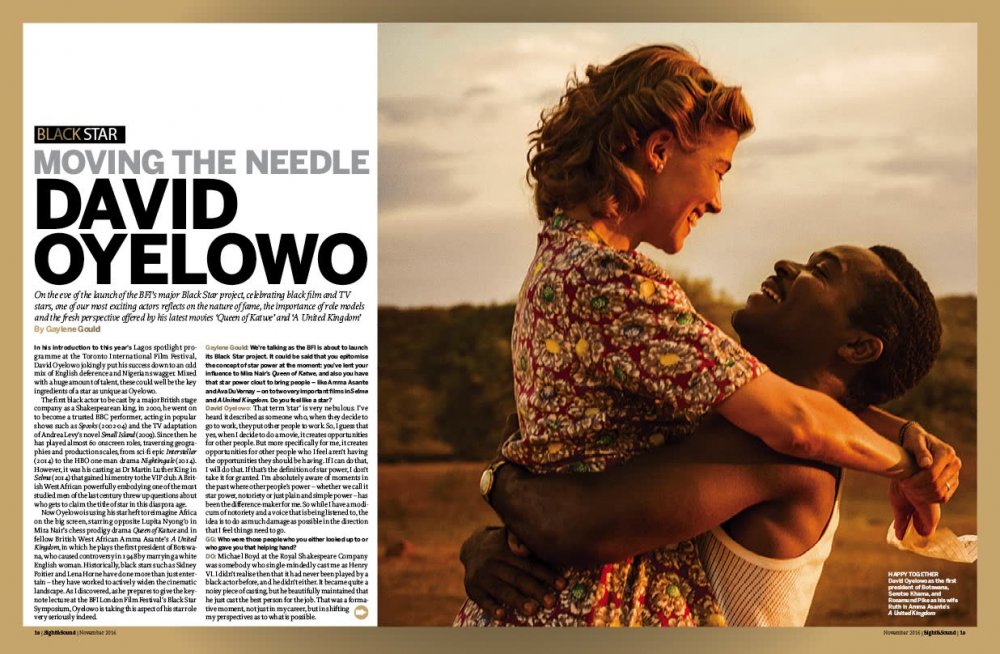
Moving the needle: David Oyelowo
On the eve of the launch of the BFI’s major Black Star project, celebrating black film and TV stars, one of our most exciting actors reflects on the nature of fame, the importance of role models and the fresh perspective offered by his latest movies Queen of Katwe and A United Kingdom. By Gaylene Gould.
+ Scenes from a marriage
Director Amma Asante relates how David Oyelowo tipped her off to the interracial love story A United Kingdom, and explains why the tale held such a personal resonance for her. By Gaylene Gould.
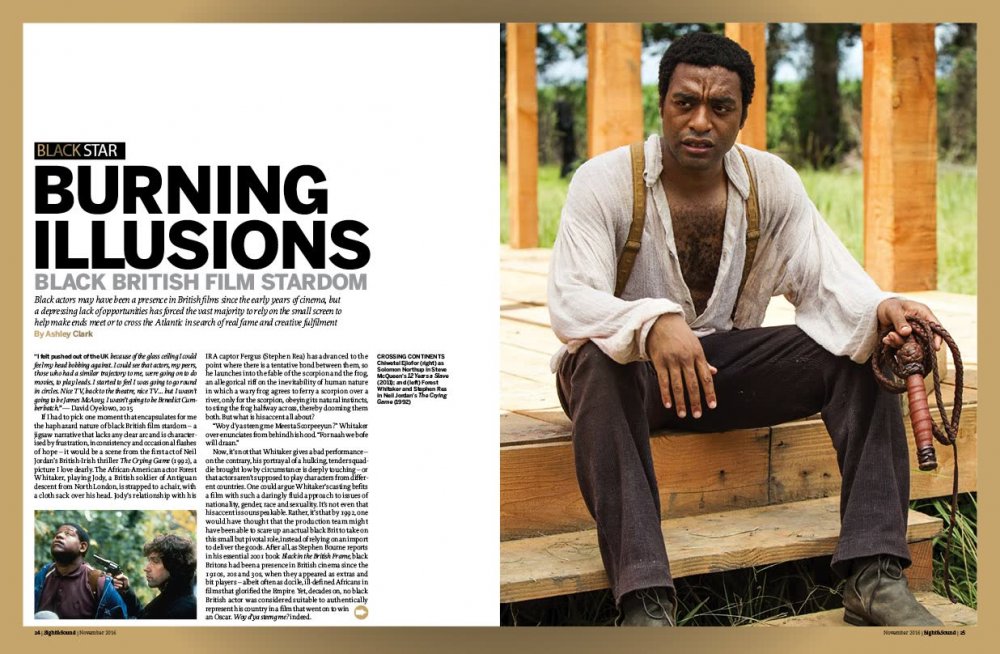
Burning illusions: Black British film stardom
Black actors may have been a presence in British films since the early years of cinema, but a depressing lack of opportunities has forced the vast majority to rely on the small screen to help make ends meet or to cross the Atlantic in search of real fame and creative fulfilment. By Ashley Clark.
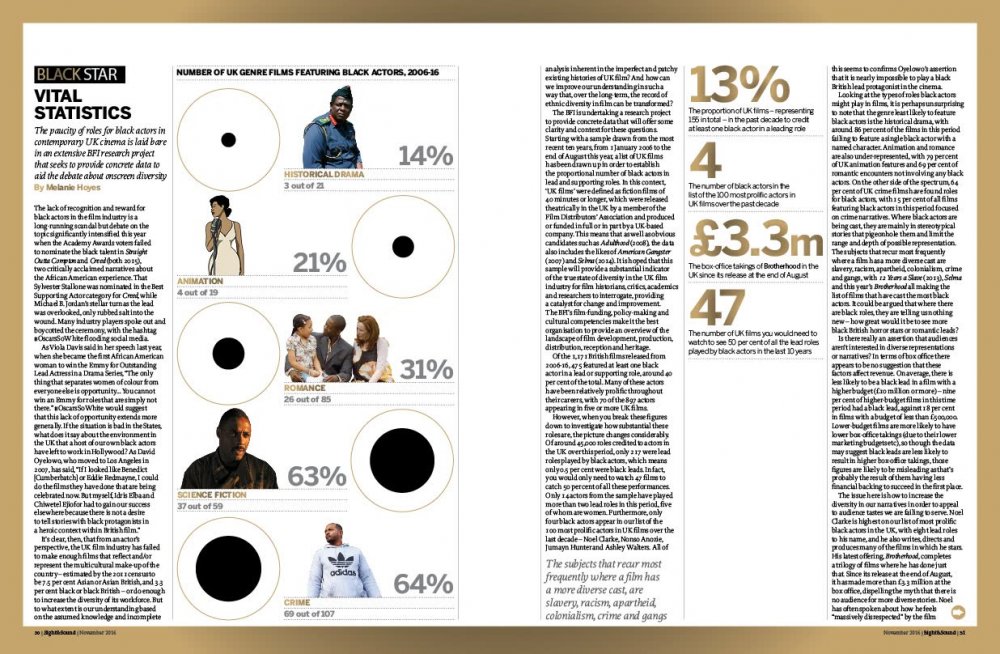
Vital Statistics
The paucity of roles for black actors in contemporary UK cinema is laid bare in an extensive BFI research project that seeks to provide concrete data to aid the debate about onscreen diversity. By Melanie Hoyes.
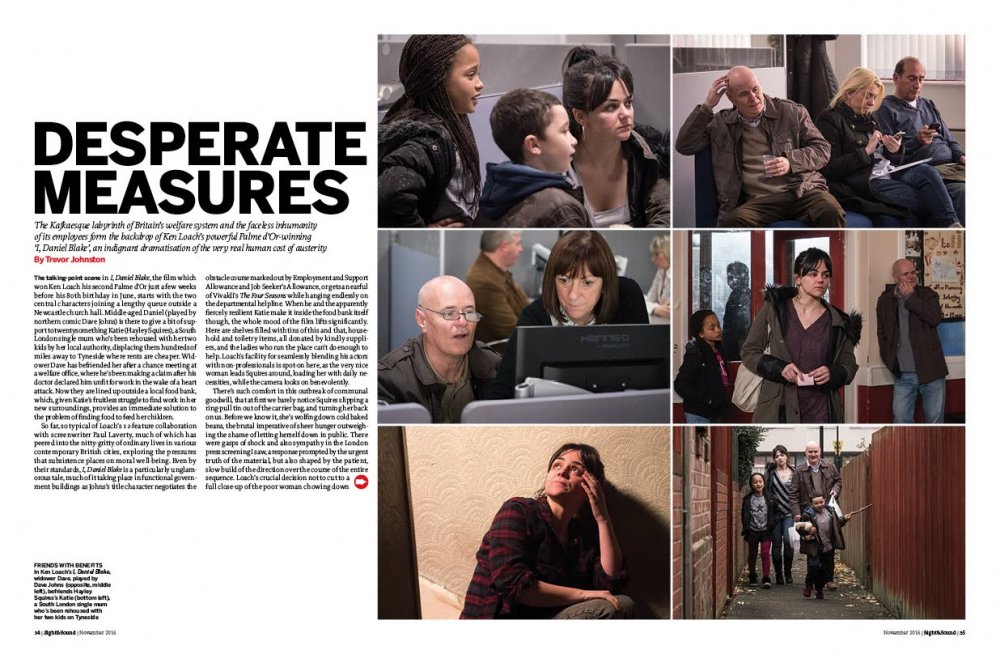
Desperate Measures
The Kafkaesque labyrinth of Britain’s welfare system and the faceless inhumanity of its employees form the backdrop of Ken Loach’s powerful Palme d’Or-winning I, Daniel Blake, an indignant dramatisation of the very real human cost of austerity By Trevor Johnston.
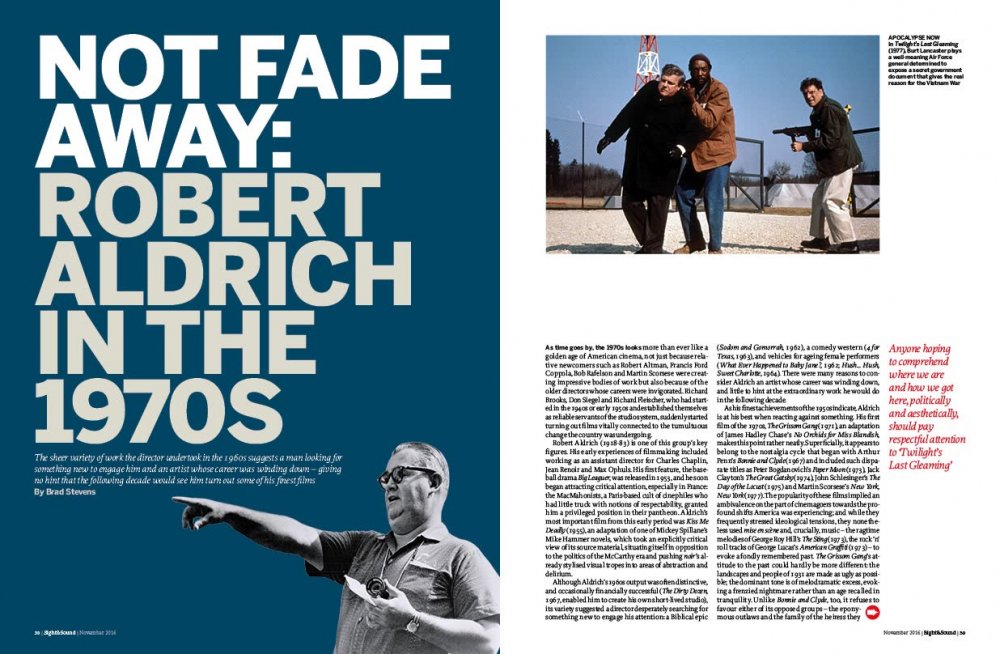
Not fade away: Robert Aldrich in the 1970s
The sheer variety of work Robert Aldrich undertook in the 1960s suggests a man looking for something new to engage him and an artist whose career was winding down – giving no hint that the following decade would see him turn out some of his finest films. By Brad Stevens.
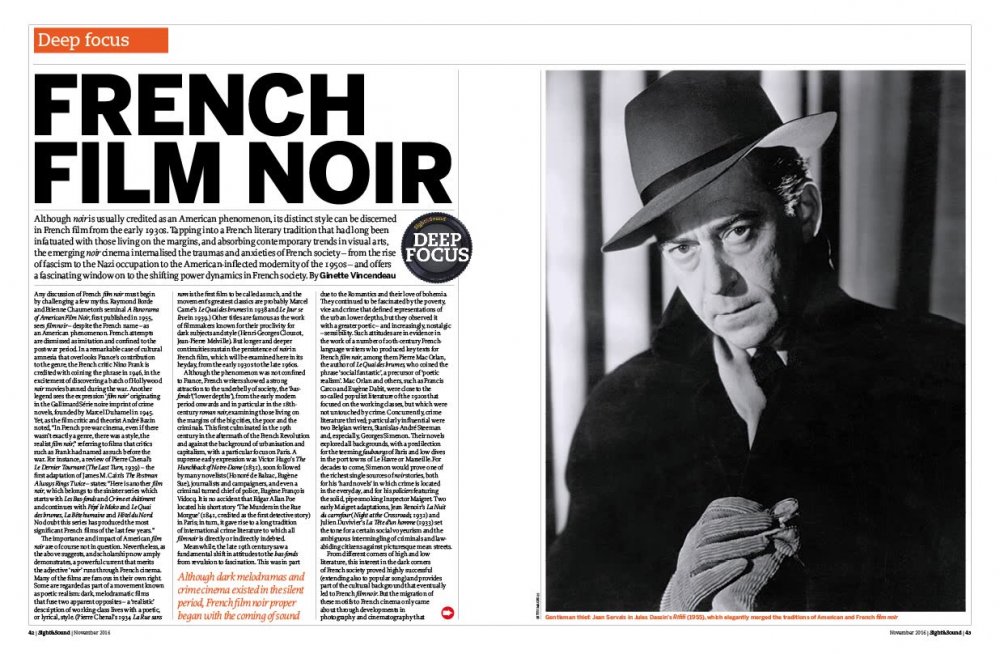
Deep Focus: French Film Noir
Although noir is usually credited as an American phenomenon, its distinct style can be discerned in French film from the early 1930s. Tapping into a French literary tradition that had long been infatuated with those living on the margins, and absorbing contemporary trends in visual arts, the emerging noir cinema internalised the traumas and anxieties of French society – from the rise of fascism to the Nazi occupation to the American-inflected modernity of the 1950s – and offers a fascinating window on to the shifting power dynamics in French society. By Ginette Vincendeau.
Regulars
Editorial
The girl in the film title
Rushes
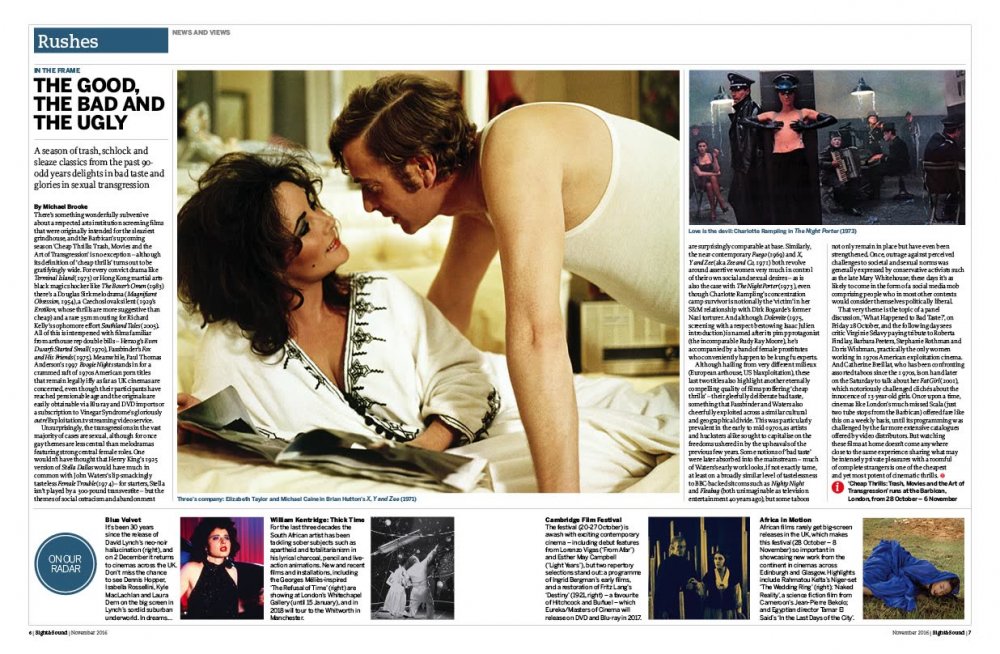
In the frame: The good, the bad and the ugly
A season of trash, schlock and sleaze classics from the past 90-odd years delights in bad taste and glories in sexual transgression. By Michael Brooke.
Object lesson: Hang ’em high
The film posters seen adorning the walls in movies offer a chance for directors to pay tribute to their heroes – and to themselves. By Hannah McGill.
Interview: Grease is the word
Jim Hosking’s twisted tale of disco dancing and murder in LA, The Greasy Strangler, is undeniably unpleasant, but also rather sweet. By Catherine Bray.
Dispatches: Pump up the volume
Why can rock gigs be very loud, with people bringing ear plugs to reduce the volume according to their preference, but cinema can’t? By Mark Cousins.
The Industry
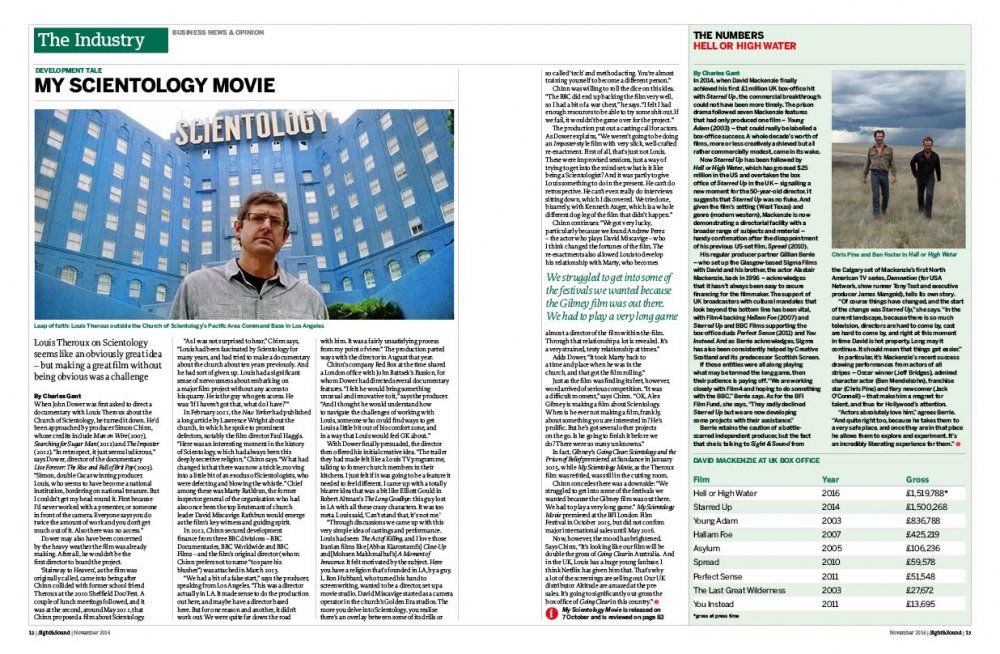
Development tale: My Scientology Movie
Louis Theroux on Scientology seems like an obviously great idea – but making a great film without being obvious was a challenge. By Charles Gant.
The numbers
Hell or High Water and David Mackenzie at the UK/Ireland box office. By Charles Gant.
Festivals
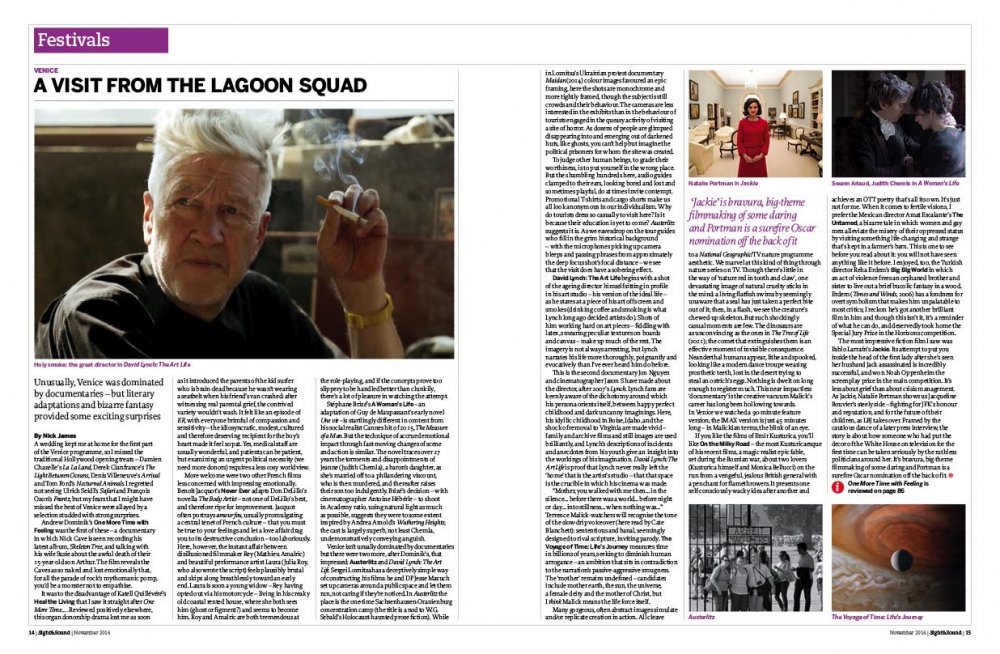
Venice: A visit from the lagoon squad
Unusually, Venice was dominated by documentaries – but literary adaptations and bizarre fantasy provided some exciting surprises. By Nick James.
Toronto: Excess all areas
The Toronto International Film Festival has got too big for its own good – but there’s plenty of good stuff buried in there somewhere. By Tom Charity.
Wide Angle
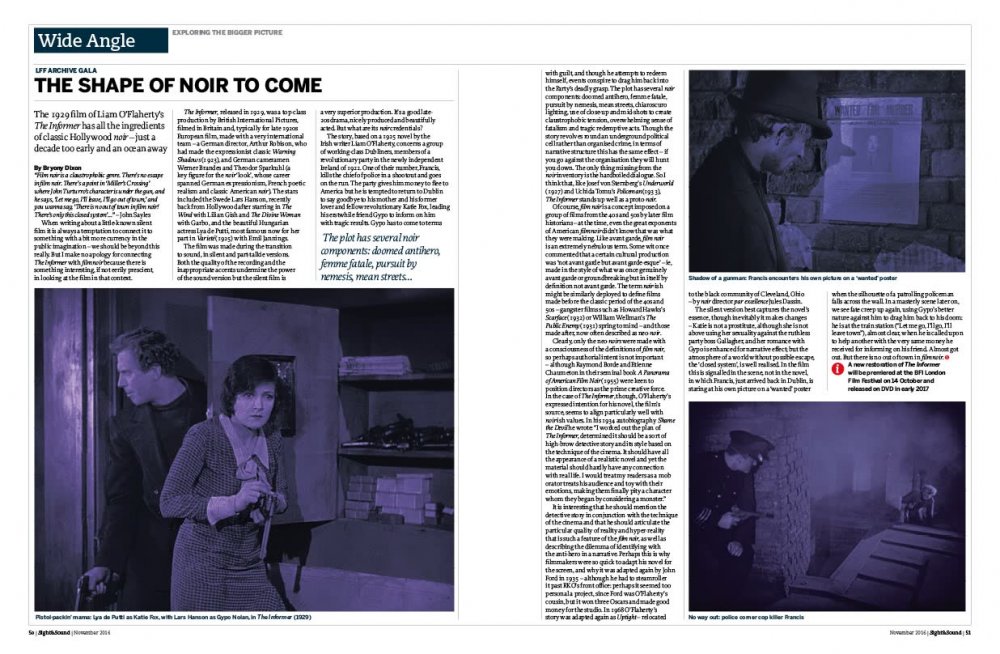
LFF Archive Gala: The shape of noir to come
The 1929 film of Liam O’Flaherty’s The Informer has all the ingredients of classic Hollywood noir – just a decade too early and an ocean away. By Bryony Dixon.
Soundings 1: Making waves
Director Paul Witzig liked Tamam Shud’s soundtrack for his 1969 surf documentary Evolution so much, he dispensed with narration entirely. By Sam Davies.
Soundings 2: Be kind rewind
In our digital, algorithm-driven world, the imperfections of the humble cassette tape have made it a symbol of integrity. By Sukhdev Sandhu.
100th anniversary of Dada: Objects talk in their sleep
In the Paris of the 1920s, Dada, a movement that rejected art and sense, found its perfect medium in film. By Nicole Brenez.
LFF Experimenta: Space pilot
The experimental spirit of the London Film-makers’ Co-op is alive and well, and living in Stephen Connolly’s explorations of place. By Vlastimir Sudar.
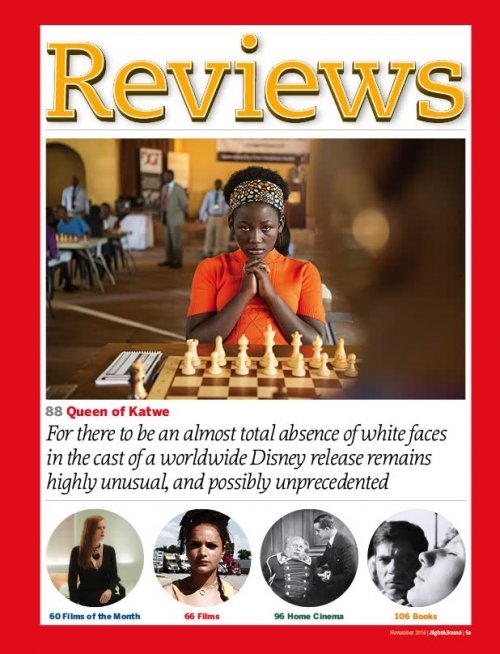
Our Reviews section
Reviews
Films of the month
After Love
Kate Plays Christine
Nocturnal Animals
plus reviews of
Akira
American Honey
Anarchy! The McLaren Westwood Gang aka The Last Revolution
Blood Father
Bridget Jones’s Baby
Call of Heroes
The Comedian’s Guide to Survival
Deepwater Horizon
De Palma
Don’t Breathe
Driving with Selvi
Equity
Further Beyond
A Good American
I, Daniel Blake
In Pursuit of Silence
The Land of the Enlightened
The Light Between Oceans
Light Years
Lo and Behold: Reveries of the Connected World
The Magnificent Seven
Mechanic: Resurrection
Morgan
My Scientology Movie
The Neighbour
NG83: When We Were B Boys
Norfolk
One More Time with Feeling
Phantom Boy
Queen of Katwe
Richard Linklater: Dream Is Destiny
Sembène!
Set the Thames on Fire
Sonita
Starfish
Train to Busan
Urban Hymn
When Two Worlds Collide
Home Cinema features
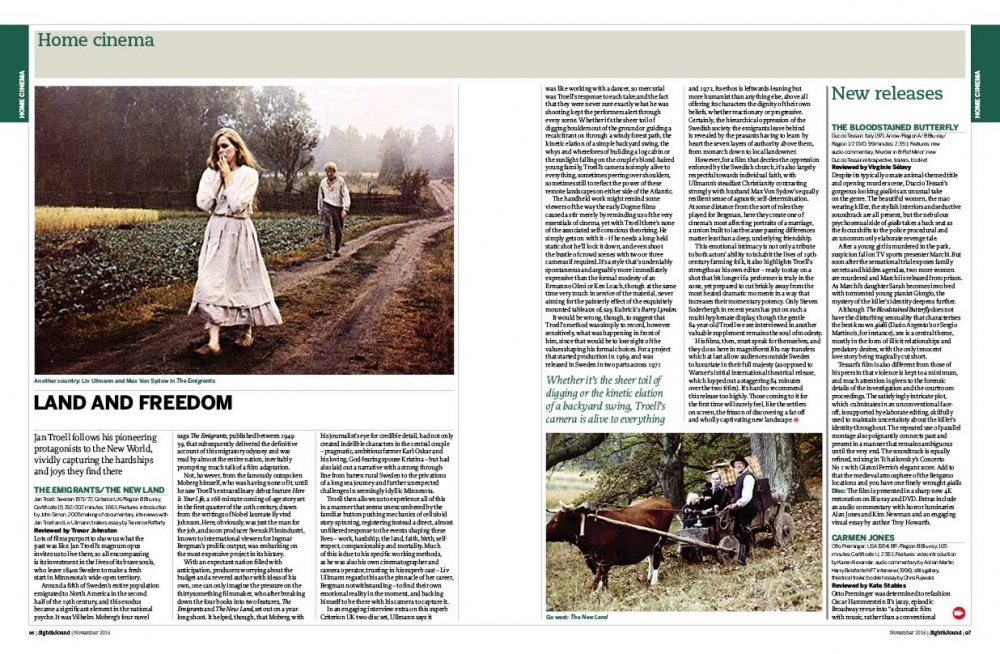
Our Home Cinema section
Land and freedom: The Emigrants / The New Land
Jan Troell follows his pioneering protagonists to the New World, vividly capturing the hardships and joys they find there. By Trevor Johnston.
A life in pictures: Nico Papatakis – The Complete Films
A fixture of fashionable post-war Paris, Nico Papatakis made his films as he lived his life: with style, passion and political commitment. By David Thompson.
A sting in the tale: Female Prisoner Scorpion – the Complete Collection
Toei had a huge hit on its hands in the 1970s with an artistically audacious series about a vengeful female assassin. By Virginie Sélavy.
Lost and found: Rapahel, or the Debauched One
Seldom has existential despair seemed so stylish: this forgotten film from not-quite New Waver Michel Deville deserves revisiting. By Dan Callahan.
plus reviews of
The Bloodstained Butterfly
Carmen Jones
Chimes at Midnight
Compulsion
Dead End Drive-In
Early Murnau: Five Films 1921-1925
Highlander
Paths of Glory
Psychomania
Road House
Whoever Slew Auntie Roo?
Television
Robert Hanks watches Shakespeare’s history plays televised, then and now
Books
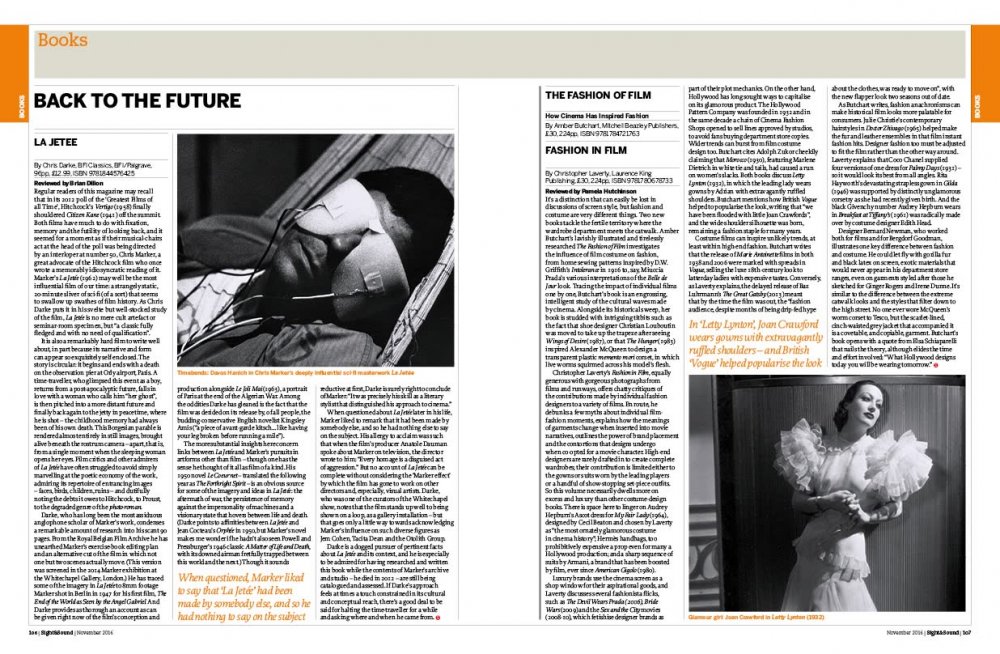
La Jetee by Chris Darke (BFI Classics, BFI/Palgrave) reviewed by Brian Dillon
The Fashion of Film: How Cinema Has Inspired Fashion by Amber Butchart (Mitchell Beazley Publishers)
+ Fashion in Film by Christopher Laverty (Laurence King Publishing) reviewed by Pamela Hutchinson
Letters
Pamela Franklin’s gothic screen childhood
MOS origin stories
Our DVD review of The Hollow Crown, corrected
Our not-on-DVD review of Give Us This Day, corrected
From the BBC’s MOR 21st-century cinema poll to the ditch
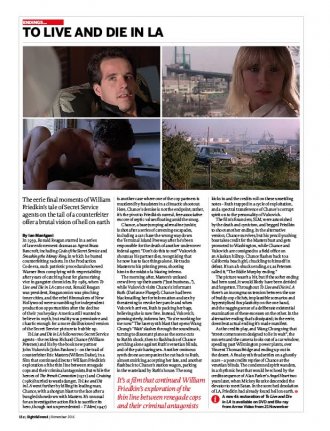
Our Endings section
Endings
To Live and Die in LA
The eerie final moments of William Friedkin’s tale of Secret Service agents on the tail of a counterfeiter offer a brutal vision of hell on earth. By Ian Mantgani.
Further reading
-
The Digital Edition and Archive quick link
Log in here to your digital edition and archive subscription, take a look at the packages on offer and buy a subscription.




